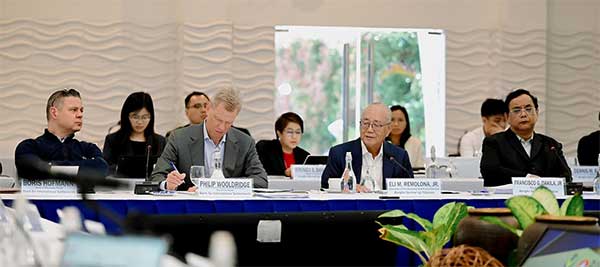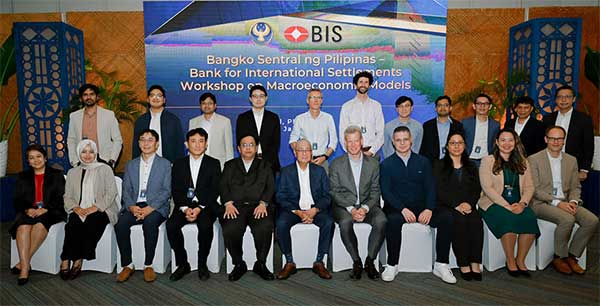
The Bangko Sentral ng Pilipinas (BSP), in partnership with the Bank for International Settlements (BIS), co-hosted a workshop on macroeconomic modelling on 16 to 17 January 2025, in Panglao, Bohol. The event gathered central bankers from 14 countries and experts to discuss emerging approaches and challenges in macroeconomic modelling.
The workshop served as a platform for knowledge-sharing and collaboration, reinforcing BSP’s commitment to strengthening macroeconomic modelling to enhance monetary policy and economic stability.
The discussions covered the following topics:
- Modelling and forecasting frameworks
- Incorporating non-linear dynamics in models to better understand macroeconomic events
- Strategies for evaluating and communicating model forecasts
- Improving modelling based on lessons learned from the post-COVID-19 inflation surge
- Using big data and artificial intelligence in modelling
In his opening remarks, BSP Governor Eli M. Remolona, Jr. emphasized the need for a broad review of the modeling framework in light of recent supply shocks in food and oil, as well as the evolving pass-through of exchange rate shocks to inflation.
“We’ve gone through supply shocks in the past, but the recent supply shocks have been very different from the previous ones, and there seems to be a need for a strategic review of the framework for modeling supply shocks.”

Governor Remolona also underscored the importance of supplementing analysis from current models with market surveillance by engaging with banks and market players on what influences their pricing behavior and economic decisions. He stated, “we should talk to the institutions, talk to the market, and be more familiar with how the markets work.”
Delivering the keynote speech, Frank Smets, Deputy Head of the BIS Monetary and Economic Department, highlighted the importance of accounting for non-linearities in models to better explain inflation surges and structural changes. He also discussed advancements in machine learning as they apply to modelling non-linearities and underscored the importance of testing for model robustness.
“With the current advances, particularly machine learning approaches, we are at the stage where more progress can be made [in estimating more complex non-linear models],” said Mr. Smets, who joined online.




















